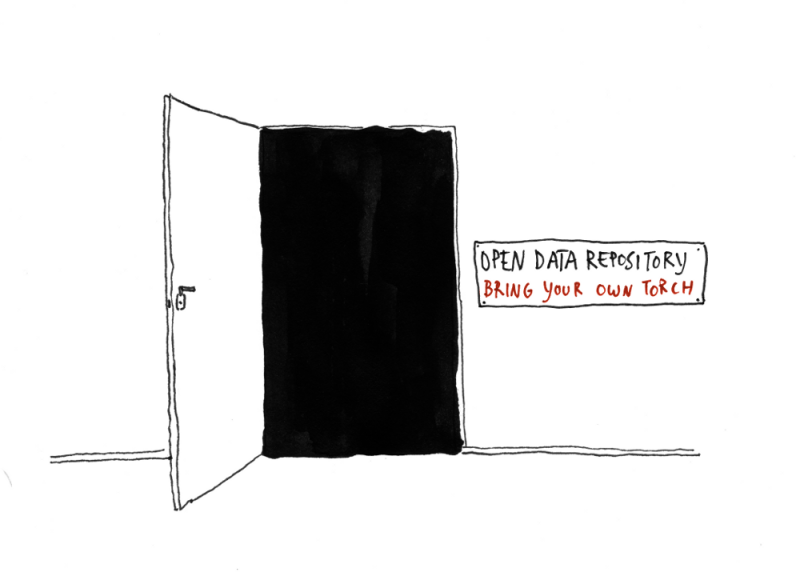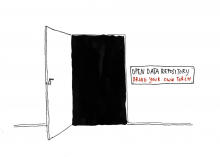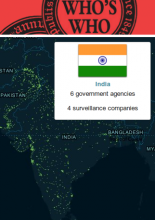Open Data: What is it? So What?
Trend
 Excerpted from Tactical Tech's Data & Design How-To: 'Opening Open Data.'
Excerpted from Tactical Tech's Data & Design How-To: 'Opening Open Data.'Data seems more abundant these days. Governments and international institutions are publishing more of it, and a growing collection of initiatives around the world are making it more useful to citizens. These projects are helping realise the goals of many activists, such as demystifying how tax money is spent, seeing how elected representatives vote in parliament, how development aid money is used, and how public services perform. It is driving innovation in a wide variety of different sectors, including politics, journalism, public services and anti-corruption.
For others, the opposite it true. Data remains as hard to find as it ever was on issues that are opaque, such as corporate and national security issues. In the majority of countries, not least those that are closed and repressive, freedom of information remains a far off aim. The data that many activists have is often found, leaked to them or discovered through tenacious and risky investigations. Whether easily obtained from public sources or not, the biggest challenge for activists are still to do something useful and effective with the data they can get.
How much information and data do you think the public bodies in your country create? Governments have long published at least some sorts of data, often through national statistics offices, or through various different thematic websites. However, the current scale and nature of data publication by some governments is very different from even a few years ago.
To see this, take a quick look around Data.gov (but please come right back). This is the main location where the United States government publishes data created and held by its national level institutions. At the time of writing, it is a catalogue and home for nearly 400,000 datasets created by 172 US government agencies. But it still remains far from comprehensive. The website itself is created to make it as easy as possible to find data; the data itself is structured to enable it to be re-used with ease. Importantly, the data comes with no restriction on who can use it and for what. It's “open” in the common sense of the word. But Data.gov is just one of many other such official “open government data” sites operated by governments in other countries. This is not to mention the many sites that have been created by non-governmental groups to catalogue the public data that exists.
The information created and held by public bodies is valuable in a range of different areas, including:
Participation in public life: information is essential to the functioning of organisations at all levels, including decision-making, administration and financial management. When it shows the operation of government and the state, advocates argue that putting this information in the hands of citizens is a precondition to the effective scrutiny of the use of power.
Economic value: some of the information collected and maintained by public bodies has economic value. For example, consider the importance of geographic or meteorological information to both government and businesses. How public bodies enable others to create businesses using this information (which they already pay to collect) is becoming a key question.
There are two complimentary activist 'movements' working specifically in this area. The first is the “access to information” movement also referred to as Freedom of Information (FOI). The second is the “open data” movement.
Access to information activists put pressure on governments to enact and implement laws enabling people to ask questions of any official body that is part of or controlled by the state, and receive prompt and thorough answers. They draw on the idea that information produced using tax money is owned by the tax-paying public, and should be made available to them without restriction. As public bodies responded to people's queries and pro-actively publish the information they create, people are able to see, better understand and scrutinize the workings of the public bodies they fund. Access to information is seen as a necessity for effective participation in public life; a tool to redress one sort of imbalance between people and the powerful institutions that govern them.
Open data activists build on these ideas and concern themselves with the re-use of data and information released by public bodies. This emerges from two important changes created by the internet:
A collapse in the costs of sharing any kind of information, and the methods by which information can be shared and consumed; and,
the fact that 'digitally native' people everywhere are creating and consuming information on the internet. Many people use online forums, social media and blogs as a key part of their lives, using it to learn and form opinions and seek advice. Other, more technical groups “mash up” data – putting it online, showing it on maps, making it searchable - to try and show interesting or new things.
Open data advocates point out that these changes are far too disruptive for anyone to ignore; that they are profound and irrevocable in every aspect of life, and the public and civic sector should adapt to them. They argue that public bodies should not only release information and data with modern online habits in mind, but they should do it in a way that removes technical, financial and legal obstacles to any sort of re-use. In practice this means designing methods and standards for releasing different sorts of information in ways that anticipate but don't preclude what people might want to do with it. These include making sure information is released in digital formats that can be used in commonly used desktop tools like spreadsheets, and using common standards to enable linking between datasets. This important technical work removes practical obstacles to the potential held within the data, helping to realise the promise that the calls for access suggest.
Open data has risen in prominence as an idea over the past few years, particularly in countries with so-called mature democracies. These are beginning to be experimented with across a spread of governmental and civic activities, often with interesting results. Their impact will take longer to determine, and a common objection advocacy groups have to it is the fact that the availability of more data doesn't translate automatically into more effective services. Yet open data and FOI are not ends in themselves; they're far from perfect, and there's an art to using them effectively. At this early stage, open data resources may have little to offer directly on many of the contentious global issues – state-sponsored violence, conflict, human rights violations, environmental degradation, resource transparency - particularly as these play out at the global level, or in transition or repressive parts of the world. In such places it may be impossible or even dangerous to ask a local authority or a company to release data. Yet this has not stopped activists experimenting with these methods, for example by not waiting for information to be released but instead finding it themselves, creating their own resources or working with leaked information.
A new picture emerges of how governments, businesses, and advocacy groups could (and perhaps should) function in the internet age. These new trends in getting and using public information have been developed through a blend of re-thinking ideas about transparency and a redefinition of the methods and ways that data and technologies can be put to use in advocacy.
They have inspired new forms of online media and approaches to news reporting, called 'data driven journalism'. They have inspired the creation of new sorts of public, digital services that enable citizens to engage in political life in ways unthinkable before. Along with social media, these new ways of publishing information present opportunities to activists and others.
What can you do with them?
Find out by reading Tactical Tech's Data & Design How-to Note 3: Open Data
ORGANISATIONS & PROJECTS WORKING WITH OPEN INFORMATION
Janaagraha : I Change My City and I Paid a Bribe
FURTHER READING
Find out if you have an access to information law at Right2Info and FreedomInfo.
Find public data that might be useful to you, on datacatalog.org.
Join the access to information movement in your country on FOIANet.
Legal Leaks: a guide for Journalists on how to access government information, by Access Info Europe and n-ost.
Opening open data, Drawing by Numbers, Tactical Tech, 2012.
The Data Journalism Handbook, Open Knowledge Foundation 2012.



